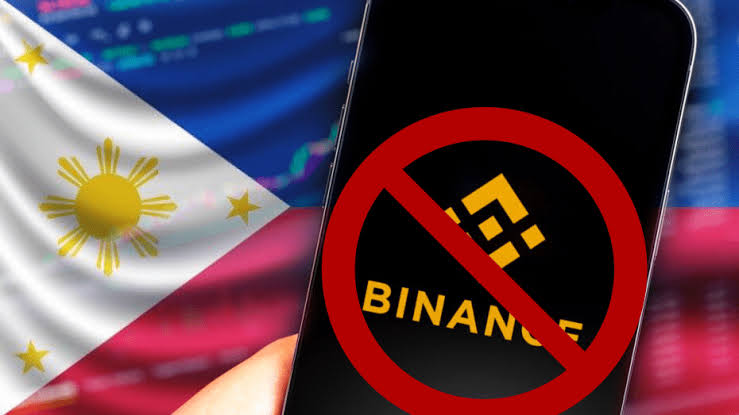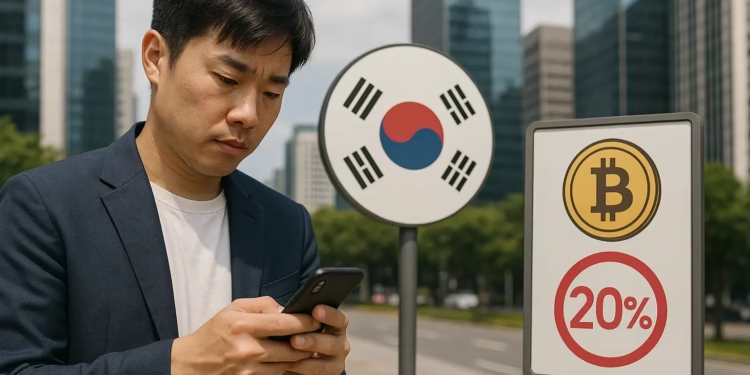South Korea’s Financial Services Commission (FSC) has unveiled sweeping regulations on South Korea crypto lending, introducing a 20% cap on interest rates, banning leveraged loans, and restricting lending activities to top-ranked digital assets. The announcement, made on Friday, marks one of the country’s most significant interventions in the digital asset market to date.
According to the FSC, only the top 20 cryptocurrencies by market capitalization — or those listed on at least three won-based exchanges — will qualify for South Korea crypto lending programs. Exchanges are also now required to provide mandatory training and suitability tests for first-time borrowers, overseen by the Digital Asset eXchange Alliance (DAXA).
“Indirect lending through third-party collaborations or outsourcing is banned to prevent regulatory evasion,” the FSC said in its statement.
The move comes after reports in late July signaled tighter oversight of crypto lending services, following concerns that leveraged products offered by local exchanges could expose retail investors to outsized risks.
Investor protection at the core
The new framework for South Korea crypto lending is designed to enhance transparency and protect users. Among the requirements, exchanges must notify clients in advance of forced liquidations and allow additional capital injections to prevent closures of positions. Crucially, platforms will be obligated to use their own balance sheets to provide lending, ending practices where third parties could underwrite loans.
“Subsidizing crypto lending without safeguards risks distorting markets and harming retail investors,” — FSC spokesperson, in a statement to local media.
Analysts note that these measures reflect a broader effort by the South Korean government to temper speculative excesses in a market that has seen rapid adoption. With more than 16 million registered users across domestic exchanges — equivalent to over 30% of the national population — the risks posed by unchecked South Korea crypto lending have become a growing policy concern.
Rising scrutiny from policymakers
The introduction of lending restrictions aligns with the FSC’s increasingly cautious stance. Lee Eok-won, nominee for FSC chairman, recently warned about the dangers of speculative digital assets.
“Crypto has extreme price volatility, lacks monetary function, and has no intrinsic value,” — Lee Eok-won, FSC chairman nominee, during remarks to lawmakers.
The new South Korea crypto lending guidelines coincide with the central bank’s plans to establish a dedicated virtual asset committee. This body will be tasked with monitoring the fast-evolving digital asset sector and ensuring compliance with financial stability objectives.
Market observers believe that South Korea’s approach could influence broader regulatory trends in Asia, where authorities are weighing how to balance investor demand with systemic risk.
South Korea’s youth and the crypto surge
Despite tightening oversight, adoption continues to climb. Recent data suggests that South Korea crypto lending and trading services remain popular among younger demographics facing limited economic opportunities. Many in the country’s youth view crypto as a potential path to financial independence, though critics argue this is more about desperation than technological enthusiasm.
“Adoption in South Korea is less about belief in Web3 and more about financial necessity,” — Eli Ilha Yune, Chief Product Officer, Anzaetek, in a June industry panel.
A growing number of wealthy families and family offices in Asia are also increasing crypto allocations, with some planning to dedicate up to 5% of their portfolios to digital assets. This trend underscores both the mainstreaming of crypto and the heightened importance of regulatory clarity in markets like South Korea.
Outlook for the crypto market
The FSC’s intervention signals a decisive effort to bring discipline to South Korea crypto lending while maintaining investor confidence in the broader market. With exchanges adjusting operations to comply with the new rules, market participants are closely watching whether the regulations will stabilize the sector or dampen demand.
For now, the message from regulators is clear: South Korea crypto lending must operate within strict parameters, prioritizing transparency and investor protection over aggressive profit-seeking strategies.











